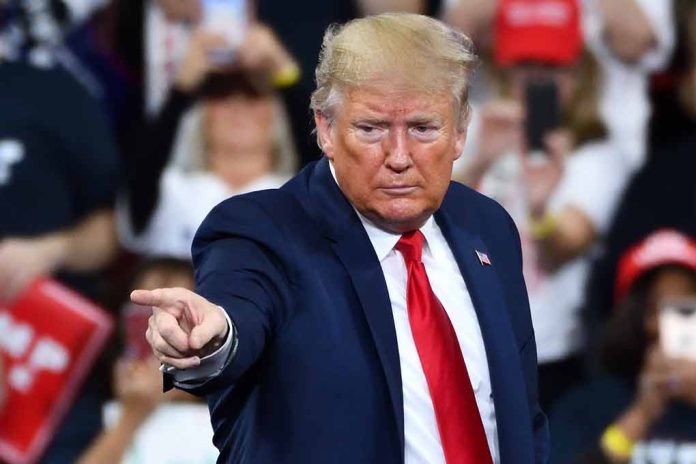
Jared Isaacman, a billionaire closely linked with Elon Musk, has been nominated by Donald Trump to head NASA, raising questions about the influence of private sector players like Elon Musk in the public arena of space exploration.
At a Glance
- Donald Trump has nominated entrepreneur Jared Isaacman to lead NASA.
- Isaacman, CEO of Shift4 Payments, has led private missions on SpaceX rockets.
- This nomination highlights potential shifts towards commercialization within NASA.
- Concerns arise over Isaacman’s ties with Elon Musk and limited government experience.
The Nomination
Donald Trump plans to nominate Jared Isaacman to lead NASA, a move that underscores a shift towards integrating private sector expertise in a traditionally governmental space. Isaacman, known for his leadership at Shift4 Payments and participation in private SpaceX missions, is viewed as an advocate for advancing space economy initiatives. His nomination opens the debate on the extent of private sector influence in public space agencies.
The nomination raises questions about the blend of private interests and public space goals, especially given Isaacman’s connections to Elon Musk. Critics express concerns over the potential bias and the unexpected nature of a non-governmental figure steering NASA. Trump’s choice may indicate a strategic pivot towards increased commercialization, highlighting Elon Musk’s expanding presence in the U.S. space agenda.
Implications for NASA
If confirmed, Jared Isaacman would bring an outsider perspective to NASA, offering unique insights into the possibilities of a thriving space economy. The Artemis program, aiming to send astronauts to the moon, presents a significant challenge due to delays related to the lunar lander being developed by SpaceX. A shift in focus might involve realigning priorities from lunar colonization to Mars exploration.
The vast potential for advancement in space economy and exploration carries immense promise. Isaacman’s vision for a “spacefaring civilization” aligns with advancing manufacturing, biotechnology, and energy. However, his close ties with Musk and limited government background remain key points of contention among critics.
A tech billionaire who bought a series of spaceflights from Elon Musk's SpaceX and conducted the first private spacewalk was nominated by President-elect Donald Trump on Wednesday to lead NASA https://t.co/q6tZOm5y9Q
— NTV News (@NTVNEWS) December 4, 2024
Looking Forward
The nomination reflects a broader, possibly controversial integration of corporate genius in NASA’s strategic objectives. Trump’s administration may focus on leveraging SpaceX’s capabilities for future moon missions, potentially reshaping NASA’s trajectory toward commercial collaboration.
Isaacman’s journey from private missions to potentially leading NASA marks a shift in space exploration. As confirmation hearings begin in January, the Senate’s response will critically shape the scope of Isaacman’s influence and the future of the U.S. space program.













